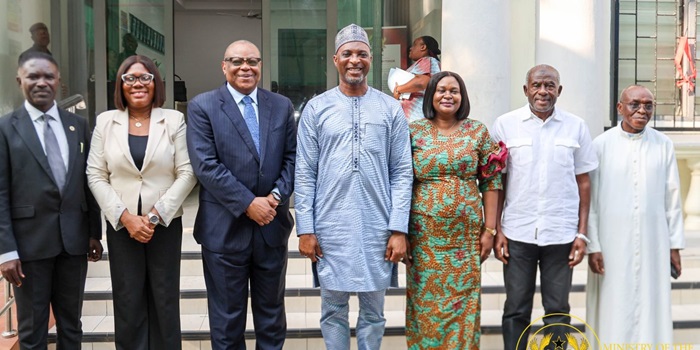The Minister for the Interior, Mr Muntaka Mohammed-Mubarak, has inaugurated a seven-member committee to mediate and promote reconciliation in the Gbiniyiri land conflict in the Savannah Region.
The violence, which broke out on August 24, 2025, following a dispute over farmland, has claimed 31 lives and left 18 others injured.
The clashes, sparked by the sale of land by the local chief to a private developer, have spread across about 12 communities in the Sawla-Tuna-Kalba District.
The unrest has forced nearly 48,000 residents to flee their homes. More than 13,000 have crossed into Côte d’Ivoire, while others are being sheltered in camps managed by the National Disaster Management Organisation (NADMO) and the Ghana Red Cross Society. Women and children form the majority of those displaced, raising humanitarian concerns.
In response, President John Dramani Mahama has ordered increased security in the area, held talks with the Yagbonwura and other traditional leaders, and dispatched the Interior Minister to lead a government delegation to Sawla and Bole.
The President appealed to all parties to support government efforts, stressing the importance of dialogue and respect for the rule of law.
At the inauguration ceremony in Accra on Monday September 8, 2025, Mr Muntaka outlined the terms of reference for the new committee.
The panel, chaired by Mr Emmanuel Habuka Bombande of the West Africa Network for Peacebuilding (WANEP), is tasked to facilitate the safe return of displaced persons, assess the scale of destruction, encourage dialogue, propose measures to sustain peace, and strengthen local institutions against future violence.
The other members are Mr Alhaji Collins Dauda, Member of Parliament and Chair of the Parliamentary Committee on Lands and Natural Resources; Rev Fr Lazarus Annyereh, Chair of the Savannah Regional Peace Council; Dr Festus Aubyn of WANEP; Ms Sylvia Horname Noagbesenu, Acting Director of the Women, Youth, Peace and Security Institute at the Kofi Annan International Peacekeeping Training Centre; Prof Ramatu Alhassan of the University of Ghana; and Dr George Amoh, Executive Secretary of the National Peace Council.
Mr Muntaka urged the committee to work impartially and engage chiefs, opinion leaders, civil society and security agencies in efforts to restore peace and trust.
He also encouraged them to work with development partners and faith-based organisations.
Mr Bombande, on his part, said the committee would provide clear recommendations to guide government interventions in supporting the affected communities with recovery and resettlement.

